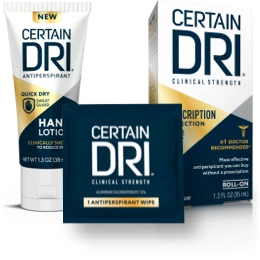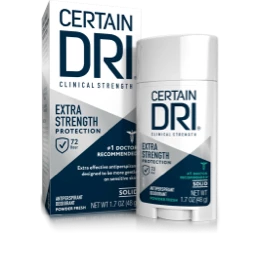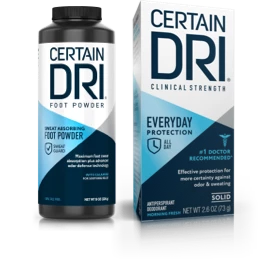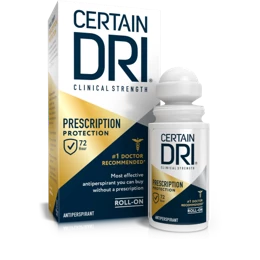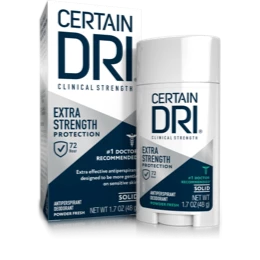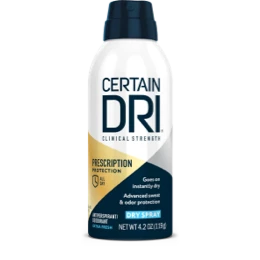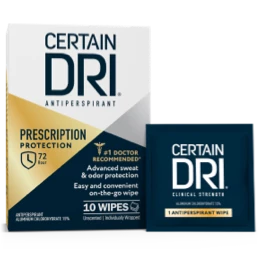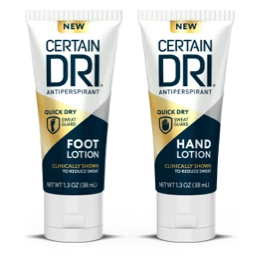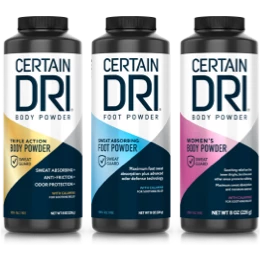Tips for managing hyperhidrosis

Many people who sweat excessively do not realize that they have a treatable medical condition. The following tips can help provide information and gain control.
Tips to help manage sweat
- Use a stronger antiperspirant sometimes described as “clinical” strength”
- Read labels & look for clothing that say the fabric is the type that wicks away moisture or look for clothing with high cotton content
- Keep antiperspirants + deodorant with you to reapply them in the middle of the day or before a stressful meeting
- Dress in layers year-round, as wearing an undershirt, absorbent camisole top or dress shields can help soak up some of the sweat
- Choose clothing in looser weaves, such as linens, and avoid fabrics like silk as it may make you feel hotter
- Skip the spicy lunches, as eating certain foods, such as hot peppers, can affect the amount of sweat you produce
- Pick colors wisely – white will show more sweat, but it won’t be as visible on other colors, nor on prints or patterns
- Carry an extra shirt or blouse to work or a social function, or leave a quick change of clothes in your car
- Pick bed linens that are made of breathable, lightweight fabrics for year round
- Skip the down comforter, even in winter, and opt for a lighter bedspread
See a dermatologist
for diagnosis
A dermatologist is one of the few doctors who receives training in the diagnosis and treatment of hyperhidrosis. A dermatologist can tell you what type of hyperhidrosis you have and recommend appropriate treatment. Prepare for your appointment by being ready to answer the following questions:
- Do any of your blood relatives have excessive sweating?
- Do you sweat a lot while sleeping?
- When did you first notice the excessive sweating?
- Do you avoid certain activities or social situations because of your sweating?
- How often do you sweat excessively?
- Does anything seem to trigger your sweating?
Get the best results
from an antiperspirant
Make sure you are using an antiperspirant rather than a deodorant. Antiperspirants can reduce sweating by plugging your sweat glands to temporarily reduce or stop sweating. On the contrary, deodorants mask or cover body odor, but allow you to sweat.
Apply antiperspirant to dry skin before going to bed. This is because you perspire less at night and the product can work more efficiently and effectively.
Keep a
sweat journal
For many people who sweat excessively, certain situations trigger their sweating.
Learning triggers is important – this knowledge can tell you when you need more help controlling the sweating. You also may find that you can avoid some triggers.
Common sweat triggers include:
- Heat
- Feeling anxious
- Certain foods
Foods and beverages that are common triggers contain:
- Monosodium glutamate (MSG)
- Caffeine (chocolate, coffee, tea)
- Hot sauce
- Spices such as curry or cumin
- Alcohol

